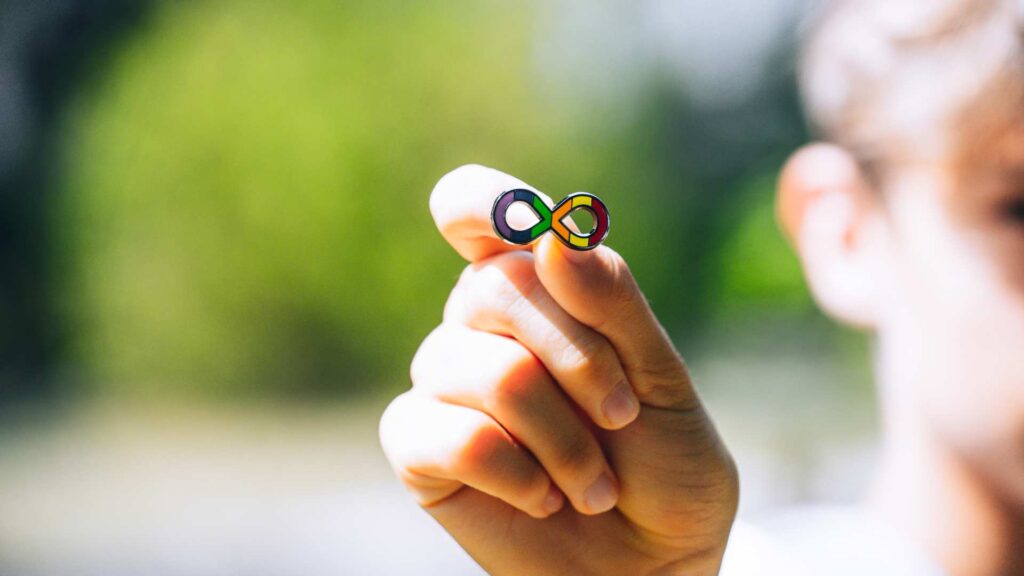Table of Contents
What are the signs of autism in teenagers?
Adolescence is already a time of rapid change and self-discovery, but for some teenagers, it’s also the period when a long-overlooked neurodevelopmental condition finally comes into focus. Autism in teens is increasingly recognized, not because it begins during the teenage years, but because the demands of adolescence often unmask traits that were previously hidden, misunderstood, or misattributed.
Many teens diagnosed with autism were previously seen as shy, quirky, inattentive, or even behaviorally challenged. It’s only when the social and emotional complexities of adolescence become more demanding. This late recognition can lead families to ask: What are the signs of autism in teenagers?
In this blog by ABA Centers of Virginia, we’ll explore how autism is present in adolescence, the challenges that come with it, and the signs of autism in teenagers that parents, educators, and caregivers should watch for.
Why Is Autism Diagnosed Later in Life?
Autism is a neurodevelopmental condition, meaning it begins in early brain development. However, it’s not uncommon for children, especially those with fewer outward traits or who have developed strong masking strategies, to reach their teenage years before receiving an official diagnosis. This delay is due to several factors:
- Milder or less obvious symptoms in early childhood
- High intelligence or verbal ability that compensates for other challenges
- Co-occurring conditions like ADHD or anxiety, masking core autistic traits
- Cultural or gender biases in how autism is perceived and evaluated

As teens face more pressure to navigate peer relationships, understand social nuance, and become independent, these underlying difficulties can become more apparent.
Moreover, for women, in particular, autism may remain undiagnosed longer because of different social behaviors and internalized traits. They may mimic peers, follow rules, or appear socially successful on the surface while struggling privately.
According to Frontiers in Psychology, women with ASD often mask their traits more, likely because they’re more aware of their social struggles. But this masking can take a serious toll, leading to feelings of anxiety, depression, and exhaustion.
Signs of Autism in Teens
Identifying autism in teenagers can be more complex because adolescence is already a time of emotional turbulence and social experimentation. Still, specific patterns and challenges are more consistent in teens on the spectrum. Some common signs of autism in teenagers include:
- Difficulty interpreting sarcasm, facial expressions, or tone of voice
- Preference for structured routines or resistance to change
- Intense focus on specific interests
- Trouble forming or maintaining peer relationships
- Literal interpretation of language
- Difficulty maintaining back-and-forth conversations
- Emotional outbursts or shutdowns during high-stress situations
- Sensory issues such as sensitivity to noise, lights, or textures
- Social withdrawal or limited desire for social interaction
- Delays in executive functioning (time management, organization, self-monitoring)
Emotional and Social Challenges in Teens with Autism

Adolescents on the spectrum face a significantly higher risk of mental health disorders. According to Brain Sciences, over 90% of autistic participants without intellectual disability had at least one psychiatric comorbidity, with anxiety (68.5%) and mood disorders (57.4%) being the most frequent.
Moreover, the Journal of Child Psychology and Psychiatry studied how emotional, behavioral, and social difficulties (EBSDs) develop in children with ASD who are diagnosed earlier (by age 7) compared to those diagnosed later (between ages 8 and 14). Researchers found that by age 14, late-diagnosed children had more severe struggles with mental health, behavior, and social interactions. These findings suggest that delays in autism diagnosis can leave children with unmet needs, and these issues often worsen as they grow older, highlighting the importance of earlier detection and support.
Teenagers with autism often experience emotional challenges that go beyond what’s typical for their age, leading to:
- Increased feelings of loneliness or isolation
- Anxiety and depression
- Bullying or exclusion at school
- Struggles with identity and self-esteem
How is Autism Managed in Adolescents?
Once the clinician provides the autism diagnosis, teens and their families can explore supports that help them navigate this phase of life. Applied Behavior Analysis (ABA) therapy has proven to be one of the most effective interventions for individuals with autism across all age groups.
ABA therapy for teenagers focuses on developing skills that are essential during this stage of life, including:
Social Skills Development: ABA programs help teens learn to navigate complex social situations, understand social cues, and develop appropriate responses to peer interactions.
Independence and Life Skills: Teenage ABA programs emphasize skills needed for increasing independence, such as self-care routines, household tasks, money management, and transportation skills.
Academic Preparation: ABA can help teens develop study skills and organization strategies.
Emotional Regulation: Teenagers with autism often struggle with managing emotions, particularly during the hormonal changes of adolescence. ABA teaches coping strategies and emotional regulation techniques.
Supporting Teenagers Beyond Diagnosis
Supporting teens with autism means seeing their strengths as well as their challenges. Many teens on the spectrum are deeply empathetic, creative, detail-oriented, and passionate about their interests. They benefit from environments that recognize their individuality, accommodate their needs, and empower their voice.
Parents and caregivers are essential actors in fostering understanding and acceptance at home and beyond. Open communication, patience, and consistent routines all support emotional security.
At ABA Centers of Virginia, We’re Here for Teens and Families
Whether a diagnosis is newly received or still in the evaluation process, ABA Centers of Virginia provides personalized ABA therapy that respects each teen’s developmental stage, goals, and emotional landscape.
We collaborate with families to design support plans that promote independence, improve communication, and ease daily challenges—all while respecting the teen’s personality and autonomy.
If you’re wondering about the signs of autism in teenagers, seeking a diagnosis, or simply looking for better ways to support your child, reach out to our team by calling (855) 957-1892 or requesting an online consultation. We’re here to walk with you through this journey—step by step.








